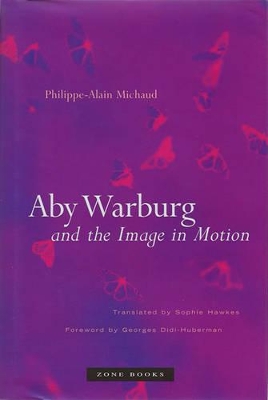Zone Books
1 total work
The purposeful discontinuities and juxtapositions of Aby Warburg's iconography and how they can be used to analyze other imagery.
Aby Warburg (1866-1929) is best known as the originator of the discipline of iconology and as the founder of the institute that bears his name. His followers included such celebrated art historians of the twentieth century as Erwin Panofsky, Edgar Wind, and Fritz Saxl. But his heirs developed, for the most part, a domesticated iconology based on the interpretation of symbolic material. As Phillippe-Alain Michaud shows in this important book, Warburg's own project was remote from any positivist or neo-Kantian ambitions. Nourished on the work of Nietzsche and Burckhardt, Warburg fashioned a "critical iconology" to reveal the irrationality of the image in Western culture. Opposing the grand teleological narratives of art inaugurated by Vasari, Warburg's method operated through historical anachronisms and discontinuities. Using "montage-collision" to create textless collections of images, he brought together pagan artifacts and masterpieces of Florentine Renaissance art, ancient Near East astrology and the Lutheran Reformation, Mannerist festivals and the sacred dances of Native Americans. Michaud insists that for Warburg, the practice of art history was the discovery within the art work itself of fracture, contradictions, tensions, and the energies of magic, empathy, totemism, and animism. Challenging normative accounts of Western European classicism, Warburg located the real sources of the Renaissance in the Dionysian spirit, in the expression of movement and dance, in the experience of trance personified in the frenzied nymph or ecstatic maenad.
Aby Warburg and the Image in Motion is not only a book about Warburg but a book written with him; Michaud uses Warburg's intuitions and discoveries to analyze other categories of imagery, including the daguerreotype, the chronophotography of Etienne-Jules Marey, early cinema, and the dances of Loie Fuller. It will be essential reading for anyone concerned with the origins of modern art history and the visual culture of modernity.
